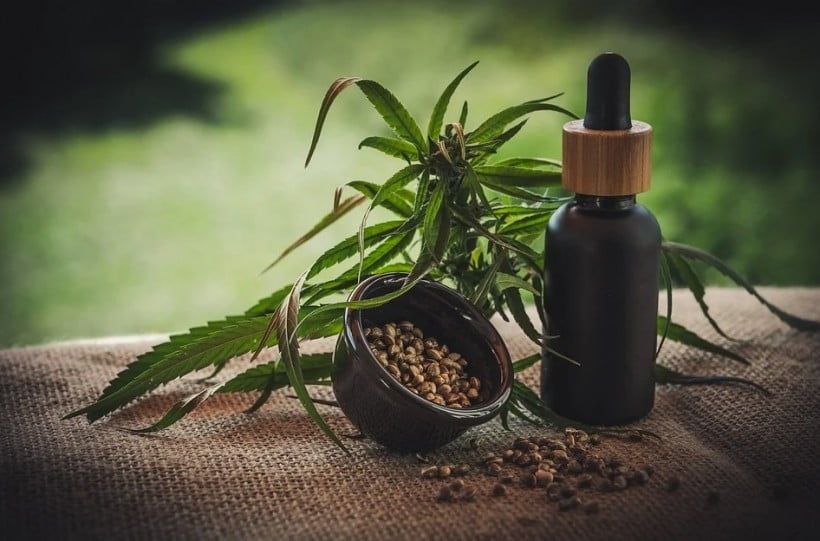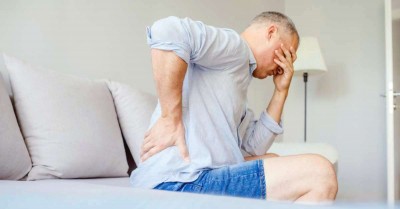Natural treatments for anxiety
Warning: Undefined variable $post in /home/dietofli/public_html/wp-content/plugins/code-snippets/php/snippet-ops.php(584) : eval()'d code on line 3
Warning: Attempt to read property "ID" on null in /home/dietofli/public_html/wp-content/plugins/code-snippets/php/snippet-ops.php(584) : eval()'d code on line 3
The estimated reading time is 6 minutes
Warning: Undefined variable $post in /home/dietofli/public_html/wp-content/plugins/oxygen/component-framework/components/classes/code-block.class.php(115) : eval()'d code on line 3
Warning: Attempt to read property "ID" on null in /home/dietofli/public_html/wp-content/plugins/oxygen/component-framework/components/classes/code-block.class.php(115) : eval()'d code on line 3

Anxiety is a natural emotion that appears when we anticipate a future threat. From an evolutionary point of view, it is an advantage because it alerts us to avoid dangers. Still, when it is very intense, it can be a problem for our social interactions, for our rest, and even for our physical comfort. Anxiety is a disorder that we have all suffered at some point in our lives, as shown by various studies on the subject. In more severe cases, in those in which the person suffers from an anxiety disorder, it is necessary to go to a psychology specialist to successfully overcome this problem.
Anxiety has many faces and many ways of manifesting itself. It can appear with physical symptoms, such as hand tremors, breathing difficulties, or insomnia. It can also have psychological manifestations, such as bad thoughts or unjustified fears.
Most of the time, the treatment for reducing anxiety symptoms is anti-anxiety medications, and although they seem like an easy solution, their prolonged use can have consequences and numerous side effects. In addition, anxiolytics lose effectiveness over time, and they can cause changes in behavior such as drowsiness, muscle weakness, or dizziness.
There is no immediate remedy for anxiety; the majority of advice from doctors and psychologists is to play sports outdoors, walk, run or cycle. Practicing relaxation techniques is also very recommended to calm anxiety. However, some natural remedies and solutions have proven to be beneficial for anxiety disorders, like medicinal plants or CBD oil and other products. Keep in mind such treatments may be helpful for those people in whom anxiety episodes are not severe. In most serious cases where anxiety has become chronic and affects daily life, it is essential to seek therapy and follow a prescribed treatment to combat the disorder. Either way, always consult an expert before self-medicating, even with natural medicine.
This article will go over some of the natural medicines that can help with this disorder. But first, let's take a look at some very beneficial habits people should consider when suffering from anxiety. (1)
Lifestyle habits to manage anxiety
There are non-pharmacological tools to deal with anxiety, whether people use medicinal plants or synthetic drugs for treatment. Without a doubt, lifestyle and body care directly impact the mind. Therefore, some of these measures can be really helpful to alleviate anxiety symptoms. It is all about working on two levels: “body and mind."
Protect the body
Having a healthy body is essential in order for its correct operation. There are several measures to consider in order to have a healthy lifestyle. Such steps are not hard to follow; although, it is true that most of the time, the daily routine doesn't leave out much space for people to commit to performing the necessary activities. However, perseverance and commitment are fundamental when it comes to generating change. (2)
The necessary activities and habits involve:
* Doing exercise
* Eating three times a day
* Having a balanced diet
* Avoiding caffeine and alcohol
* Sleeping enough
Take care of the mind
Now let's consider the measures needed to take care of our minds, as we just did with our bodies. It is the same concept. It is essential to:
* Know your internal fears
* Comprehend that we cannot control everything
* Meditate
* Take deep breaths
* Include spare time in the routine
Natural ways to treat anxiety
Unlike anxiolytics, nature takes its time to help you feel better; therefore, it might require a little effort on your part, a certain level of commitment, and perseverance.
More and more people are looking for natural and healthy alternatives to mental disorders that can appear in complicated stages.
Cannabidiol (CBD) oil: CBD oil is available without a prescription at many alternative health care stores. Preliminary research suggests that it has significant potential for reducing anxiety and panic. This oil does not contain tetrahydrocannabinol or THC, which is the substance that produces the "high" or hallucinatory effect.
Valerian Tea: Valerian root is believed to have an impact on the availability of the neurotransmitter GABA in the brain. GABA is the main inhibitory neurotransmitter in the nervous system, and it is responsible for inhibiting the activity of brain neurons, promoting relaxation, and reducing stress levels.
Green tea: Although green tea is a stimulant, some studies have shown that it is beneficial for anxiety. Mainly because it stimulates brain neurotransmitters that induce relaxation, thanks to L-theanine. In addition, this substance helps to stop the rising heart rate and blood pressure.
Lemon balm: This herb is effective in treating sleep, nervousness, and anxiety. However, in excess, it can be counterproductive and cause more anxiety, so it should be taken in moderation.
Licorice root: It works as a natural alternative to cortisone, which can help the body handle stressful situations, and acts to normalize blood sugar levels, as well as the adrenal glands, providing the necessary energy to deal with the stressful situation. Licorice root stimulates the cranial and cerebrospinal fluid and calms the mind.
Kava: This plant is a subspecies of mint, and it is beneficial in reducing anxiety and nervousness. Studies show that it is very helpful in calming people. It is also used against insomnia.
Linden: Linden is one of the most consumed infusions for anxiety. It helps to calm people´s nerves and be more relaxed. It is not as strong as valerian, but it can be very effective.
Passionflower: This infusion acts as an anxiolytic; it generates a calming and relaxing effect. It was used by the Aztecs centuries ago for its analgesic and sedative effects. It is also used for insomnia, headache, or tachycardia.
St. John's wort or herb: St. John's wort is beneficial for the treatment of depression and anxiety, as it can restore the balance of neurotransmitters that have an impact on mood.
Arctic root: It has been shown to be very effective for occasional anxiety and periods of stress. It is known for its adaptogenic properties. An adaptogen is a physiological agent that naturally increases the body's resistance to physical and emotional stress. This plant favors the increase in the activity of serotonin, norepinephrine, and dopamine. (3)














